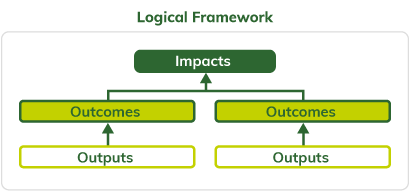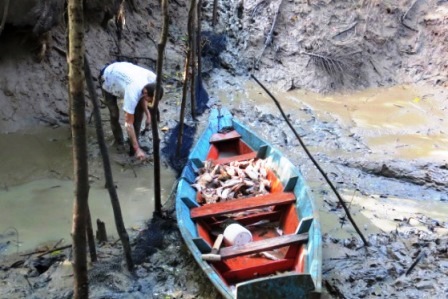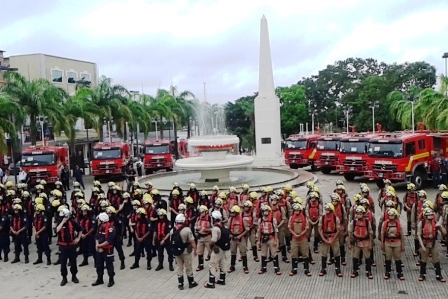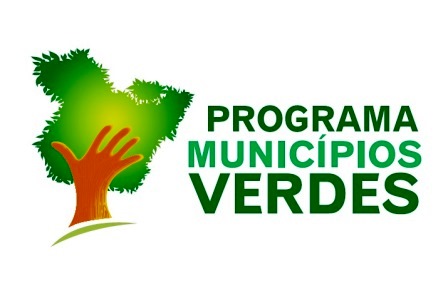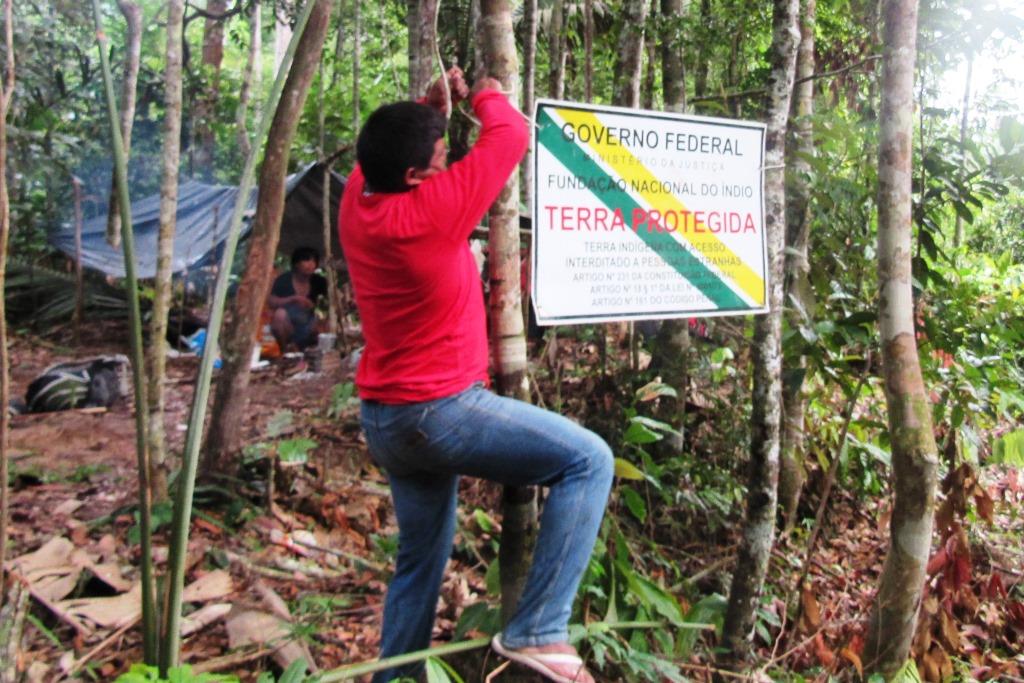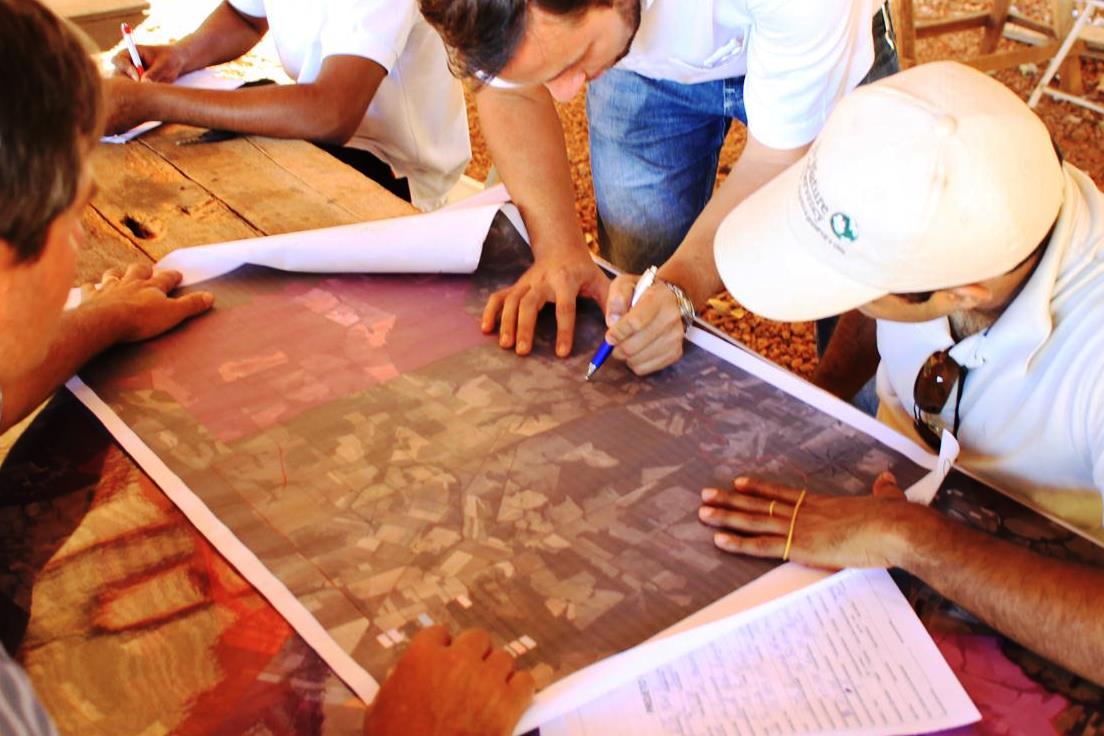RESULT AND IMPACT INDICATORS
The project activities contributed to the results related to the “monitoring and control” component (2) of the Amazon Fund’s Logical Framework.
Direct effect 2.1: Municipal Department of Environment and Tourism of the municipality of Jacundá structured and modernized.
The indicator agreed for monitoring this objective was:
- Annual deforestation rate in the municipality of Jacundá
Baseline: 1.8 km2 (2013) | Result achieved: 2.7 km2 (2018)
The annual shallow cutting deforestation rate in 2013 (the year prior to the beginning of the project actions¹) was 1.8 km2, while in 2018 this rate was 2.7 km2, that is, there was a 50% increase in the deforestation rate when compared with the baseline and 2018. This increase in deforestation is not a good result, but it should be put into perspective: the deforestation rate in the six years prior to the baseline (2007 to 2012) had been 5.3 km2/year, almost double the deforestation rate in 2018. In 2004 and 2005, 42.5 km2 and 26.4 km2 were deforested, respectively, in the municipality of Jacundá.
|
Year
|
Area (km²)
|
|
2013
|
1.8
|
|
2014
|
1.8
|
|
2015
|
3.3
|
|
2016
|
2.1
|
|
2017
|
2.0
|
|
2018
|
2.7
|
Source: BNDES, based on information from Prodes/Inpe²
¹ Annual deforestation rates have been calculated by Inpe for the periods from August to July every year, uninterruptedly, since 1988.
² Inpe’s Prodes system performs the inventory of loss of primary forest through the use of satellite images of the Earth for the entire length of the Brazilian Amazon.
Institutional and administrative aspects
The project scope was reduced due to the difficulties of the municipality of Jacundá to meet its tax obligations, since the legislation only authorizes the release of funds by BNDES to public or private entities that are compliant with the Federal Revenue Service of Brazil (RFB) and the Attorney General’s Office of the National Treasury (PGFN).
Due to this circumstance, the total amount of the Amazon Fund support was reduced from R$ 792,200.00 to R$ 199,352.05, used for the renovation and expansion of the Sematur building, and there was no financial consideration of the municipality. Nevertheless, it was verified that Sematur provided the structuring of the new facilities of this department satisfactorily, with the allocation of its own furniture and equipment. Finally, it is worth mentioning that the Amazon Fund does not pay the daily expenses and salaries of public servants.
Risks and lessons learned
The Amazon Fund approved a total of ten projects for nine municipalities. Of this set, four were completed by 2018, two of which were of larger scale and with positive evaluation. Three other projects were cancelled, and the present project had its scope significantly reduced after the contract.
The causes that motivated the cancellations or reduction in scope of projects in the municipalities are varied, such as delays by difficulties in meeting the preconditions to contract, supervening of municipal elections with disinterest of new administrations in carrying out projects and difficulty of the municipalities to prove, even during the period of implementation of the projects, their tax compliance with the RFB and PGFN.
Most of the municipal administration projects supported by the Amazon Fund were also characterized by small investments. Based on this set of findings, the Amazon Fund Steering Committee (COFA) discontinued, in 2013, the approval of new direct support from the Amazon Fund to municipalities. The new strategy defined by the COFA began
to provide indirect support to municipalities, through larger projects, coordinated by institutions of reference or states of the Federation.
This new strategy established by the COFA did not significantly expand the support to municipalities to contain deforestation, thus remaining the challenge of engaging municipalities, important links of society, in an agenda of sustainable development that values the standing forest.
Sustainability of the results
The project contributed to the physical and operational structuring of Sematur in the municipality of Jacundá, in the state of Pará, and the new facilities of the department, implemented with the support of the Amazon Fund, in addition to contributing to better accommodation of employees, materials and documents, provided the population of this municipality with better service with regard to public services related to the environment.
The sustainability of the results achieved with the support of the Amazon Fund depends on the continued allocation in the budget of the municipality of Jacundá of sufficient resources for Sematur to carry out its activities of environmental licensing, inspection and regularization of municipal competence.


